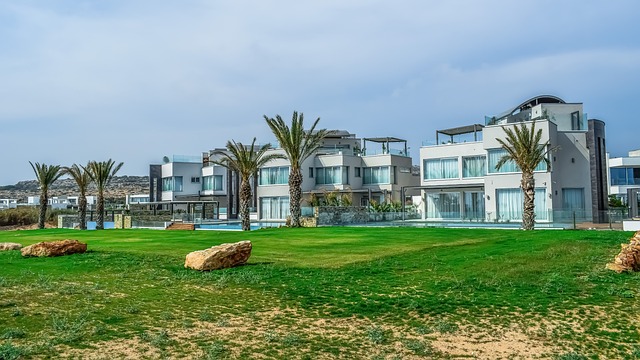The Distressed Property Market in the UAE: Guide to Cheap Repossessed Units
In the real estate sector, ‘distressed property’ is often associated with a windfall for potential buyers or investors. However, such opportunities are born from the property’s owner’s or issuer’s financial difficulties, leading to possible insolvency or bankruptcy. In such scenarios, distressed sales can offer properties at prices significantly below market value. Let’s delve deeper into the UAE distressed property market and what you need to consider before taking the plunge.
Distressed Properties vs. Repossessed Properties
In real estate investing, two types of properties are often up for grabs at prices below market value: distressed properties and repossessed properties. Although they may seem similar, there are key differences that investors need to understand.
Distressed Properties
Distressed properties refer to homes that are up for sale by owners who cannot continue making mortgage payments or properties that are in default or near default due to reasons particular to the owner. In most cases, distressed property owners deal with financial difficulties, which might lead to bankruptcy or insolvency.
This results in the property being sold for less than its actual value, often allowing potential buyers to secure a good deal. However, it’s crucial to understand that distressed sales often have a short transaction time and are usually all-cash deals.
Repossessed Properties
On the other hand, repossessed properties have been taken over by a lender—usually, a bank—after the previous owner defaulted on their mortgage payments. After a period of non-payment, the lender has the right to seize the property to recover the outstanding loan amount.
Unlike distressed properties, where owners aim for a quick sale to alleviate their financial situation, repossessed properties are sold by financial institutions that seek to recover their losses. These institutions typically sell the properties through auctions or a real estate agent, and these sales are also often below market value.
Grasping the Market Scenario
In regions like Business Bay, you may encounter distressed deals in various forms. It’s not unusual to see entire building floors sold at a substantial 25% below the market price. Distressed assets are typically valued lower than their actual price. They are often in default or near default due to situations affecting the property owner rather than the broader market. However, more general market conditions and external factors can also impact a property’s performance or short sale.
While distressed sales can offer appealing deals, Kunal Puri, the managing director of La Capitale Real Estate Broker, suggests that end users should prioritize beneficial values over distressed sales. He highlights that distressed properties often have their own set of difficulties. However, if buyers happen upon a desirable distressed sale, they should be ready to finalize it quickly.
Harry Tregoning, managing partner at Tregoning Property, agrees with this view and adds that distressed sales can offer diverse opportunities. However, he also cautions that distressed sales are sometimes the best choice for property owners. Nevertheless, the reduced prices associated with distressed sales allow buyers to enter the market at a lower cost, which appeals to many.
Navigating Distressed Sales
Ensuring the legitimacy of a distressed sale is of utmost importance. You should confirm that the property is free from liabilities or legal obligations. There is a common misunderstanding where people mix the transactional price (the actual price at which a property is sold) and the advertised or market price, often mislabeling every deal as a distressed sale.
Intriguingly, fluctuations in foreign currency values can also prompt property owners to sell below the market price. Suppose the currency of the seller’s home country has devalued. In that case, they may wish to convert money back home and gain from the exchange rate, even if it means selling their property at a lower rate. Others might prefer to sell their property before handover, anticipating a price fall as more units become available in the market.
Legal Aspects
The new Bankruptcy Law in UAE, specifically Federal Law by Decree No (9) of 2016 on Bankruptcy, provides a detailed structure on how to deal with the assets of debtors facing financial difficulties. This law introduces a concept known as “protective composition,” which is intended to help the debtor settle with creditors without going through formal bankruptcy procedures.
However, the current laws in UAE do not cover the securitization of distressed debt. Although introducing the bankruptcy law is a positive step, there is still room for further growth in terms of laws and regulations regarding the management of distressed assets in the UAE.
Conducting Due Diligence
Before finalizing a distressed property deal, reviewing all aspects of the property and the sale carefully is crucial. This process is known as due diligence. Here are some key points to consider:
For properties that are already built and ready:
- Request a maintenance file from the owner, which typically contains records of all past upkeep.
- Please inquire about the frequency of air conditioning (A/C) servicing and the last time it was done.
- Ask about the last time the A/C duct was cleaned.
- Verify when the water heaters were last replaced.
- Check for any history of electrical issues.
- Look for visible signs of damage, such as cement patches or cracks on the walls, or paint cracks near the floor which could indicate water seepage.
- Assess the condition of the kitchen floor for signs of heavy usage.
- Examine the garage floor for any depressions which could indicate water leakage.
For properties that are still under construction (off-plan):
- Research the reputation and credibility of the developer.
- Check the status of the building. The Dubai Land Department has an app for this purpose.
- Allow for possible delays in delivery. As per law, a developer can delay handover by at least one year.
- Investigate how many similar projects are being developed within 5 km of the property.
Finally, remember that distressed property deals are typically cash deals with a short turnaround time of 7 to 14 days.
A First-Time Investor’s Guide to Buying Repossessed Properties in Dubai
As a first-time investor, purchasing a repossessed property in Dubai can seem appealing due to the potential for acquiring a property below market value. However, before diving in, it’s essential to understand the unique challenges and benefits this type of investment can bring.
Benefits of Buying Repossessed Properties
1. Potential for Good Deals: The primary appeal of buying repossessed properties is the potential for a good deal. Lenders often sell repossessed properties at a lower price to recover the money owed quickly.
2. Variety of Choices: Banks or financial institutions may sometimes have a diverse inventory of repossessed properties ranging from residential to commercial real estate.
3. Clear Title: Buying from a bank or a financial institution usually means that the property comes with a clean title, free from any liens or encumbrances.
Challenges of Buying Repossessed Properties
1. Property Condition: Repossessed properties are often sold “as-is,” which means they may need extensive repairs or renovations.
2. Market Knowledge: You’ll need a solid understanding of the property market, including realistic property prices, to recognize a good deal.
3. Additional Costs: Additional costs may be associated with buying a repossessed property, such as legal fees or maintenance costs.
4. Competitive Bidding: As these properties are often sold at a lower price, they can attract many investors, leading to competitive bidding, which may increase the final purchase price.
Critical Considerations for First-Time Investors
For first-time investors, due diligence is vital. Research the property and its location thoroughly, consider the potential costs of any necessary repairs or renovations, and seek professional advice. Check the credibility of the developer if it’s an off-plan project. If the property is ready, ask for the maintenance file and check for any issues, such as water leakage or electrical problems.
If you’re planning to buy the property with a mortgage, secure the pre-approval first. Remember that repossessed properties are often bought in cash, so ensure you have your finances in order.
Finally, patience is crucial. While buying a repossessed property can offer excellent potential returns, it also comes with risks. Take the time to understand the process, consult with professionals, and don’t rush your decision.
Conclusion
Buying distressed properties in the UAE presents a unique opportunity for investors and end-users alike. While the prospect of purchasing a property at a significantly reduced cost is attractive, it’s crucial to understand the inherent risks and complexities. Buyers must conduct comprehensive due diligence and consider the legal implications before proceeding. With a sound understanding of the distressed property landscape and proper guidance, you can find a gem in the rough.














